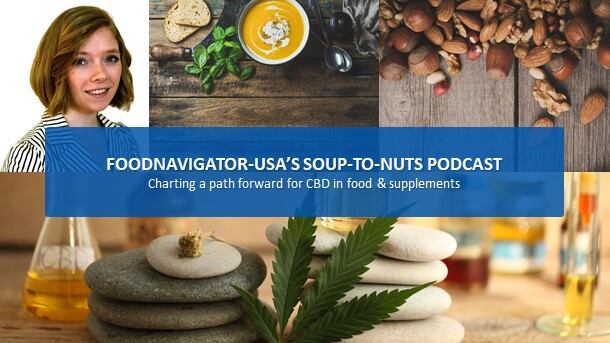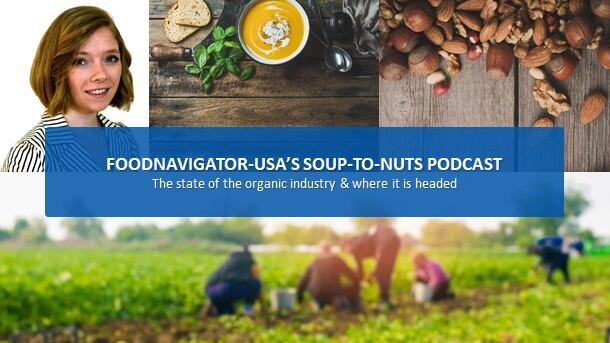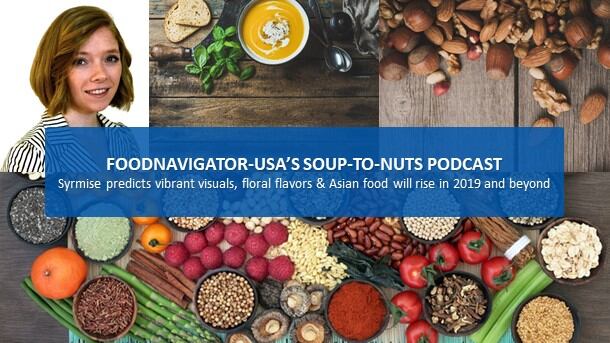And yet, FDA has said over and over that because CBD appeared first in an investigational new drug before it was a recognized ingredient in the food supply it is not a legal food or dietary supplement ingredient … at least for now.
The agency has cracked open a door to the possibility that might allow CBD or other cannabis-derived ingredients in conventional foods and dietary supplements depending on analysis of safety data and if it can scaffold a regulatory framework that allows for appropriate oversight.
The snag, however, as revealed May 31 when FDA hosted an open hearing on CBD and cannabis-derived compounds, is that the agency doesn’t currently have sufficient science to prove safety or efficacy or a clear idea about what an appropriate regulatory framework might be. As such, it is asking industry for help by submitting data and comments to the agency through July 2.
In this episode of FoodNavigator-USA’s Soup-To-Nuts, we take a closer look at the some of the comments and data – or lack thereof – presented at the FDA public hearing and hear from industry experts about what this might mean for CBD stakeholders.
The size of the prize
When the 2018 Farm Bill legalized growing hemp with THC levels of 0.3% or lower, Greg Kaufman, a partner with the law firm Eversheds Sutherland who attended the FDA hearing on May 31, noted that many stakeholders celebrated as if the legislation unlocked a treasure chest.
“There is so much interest in it … you see projections it is a $5 billion market, it is a $10 billion market, it is going to be a $50 billion market – so when you see projections like that there is a lot of interest and there are a lot of people who want to get involved in it,” he said.
He added that hemp is priced off the percentage of CBD, and that one acre could be worth as much as $60,000, compared to only $600 for an acre of wheat – making it attractive for farmers as well.
More research needed
But as Kaufman added, the Farm Bill wasn’t really a panacea for all of the hemp industry’s challenges. Rather, he explained, several hurdles continue to block the path forward for using CBD and other cannabis-derived ingredients – the most pressing of which from FDA’s perspective is a dearth of science-based research into the safety and efficacy of CBD and other cannabis-derived ingredients.
In particular, FDA wants more information on dosage, labeling and how CBD interacts with other drugs, all of which are not currently well-known in the marketplace. Part of the reason for the lack of information are tight restrictions at the federal level on what kind of research can be done.
Kaufman noted that one of his clients reports there are 600 compounds in a cannabis plant, of which they have identified about 130 and only know five “really well.”
As more research is completed, it will help inform the path forward, he added.
But that path likely will not be a straight or as easy to follow as some in the industry might hope. Based on science presented at the meeting by Elise Weerts, a professor of psychiatry and behavior sciences at Johns Hopkins, the existing research paints a much more complex picture of CBD than many stakeholders project.
She noted research has found both pros and cons for CBD. On the con side is evidence it is addictive, despite claims otherwise. On the pro side, research suggests it could help with some chronic ailments.
In response to Weerts’ presentation, as well as those of many others, FDA panelists repeatedly asked presenters to submit their research to the docket for closer inspection. Some happily agreed and added color to their comments, while others squirmed – clearly unable to meet the agency’s basic request.
FDA panelists also asked about basic definitions for key terms frequently used by the industry, such as broad spectrum, full spectrum and isolates – a request that underscored the depth of the agency’s need for more information about every aspect of task ahead of them.
While Kaufman said he understood the panelists’ requests for more data, he was also disappointed that their questions were not more pointed – a shortcoming that he suggested my signal the agency is punting on the issue.
Other logistical challenges
Even if FDA greenlights CBD for use in conventional food and supplements, Kaufman explains stakeholders would still need to overcome significant hurdles, including distrust by banks, insurance companies and other professional entities that currently are unwilling to serve hemp-derived CBD businesses.
At the hearing, Andrew Kline of the National Cannabis Industry Association explained the potential economic impact of the cannabis sector as well as the negative impact on stakeholders of financial institutions unwilling to work with them.
Kaufman added that banks’ refusal to work with entrepreneurs in the space adds a degree of danger that is unnecessary.
While many of these problems exist at the national level, Bill Acevedo, who is a partner with the law firm Wendel Rosen, points out there also is another layer of challenges at the state level, where varying laws are complicating interstate business.
“For example, the US Postal Service … have been concerned about mailing … hemp derived CBD,” he said.
In addition, he said, different states of varying quality control regulations. For example, in Colorado, manufacturers must ensure THC levels are below 0.3% in products with CBD, and in California Prop 65 adds a complicating twist to safety analysis.
With so much to wade through, both Acevedo and Kaufman said it is unlikely that FDA will heed industry’s call to act on this issue within the year. Rather, they predict there is a long road ahead that could stretch upwards of five years depending on the approach that FDA takes.
On that note, they both encouraged stakeholders to share with FDA their concerns ahead of the July 2 deadline for submitting comments to the docket.




